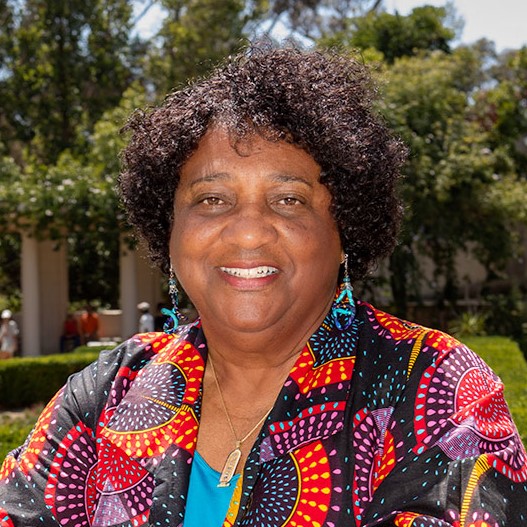

IndigenousNetwork was able to attend this week’s California media briefing hosted by American Community Media in partnership with the Secretary of State’s office. The event, led by Secretary of State Shirley N. Weber, Ph.D., was focused on the upcoming November 4 statewide special election. While briefings of this nature often dwell on procedure, this one felt charged with a deeper question about civic participation in an era of political distrust and voter fatigue. For Indigenous and other marginalized communities, access to the ballot remains a matter not just of representation but of survival within systems that have historically silenced their voices.
Secretary Weber spoke with a mixture of authority and urgency drawn from personal history. Born to sharecroppers in Arkansas during the Jim Crow era, she is California’s first Black Secretary of State and only the fifth African American to hold a statewide constitutional office. Her father did not vote until his thirties, and her grandfather never voted at all. “I’m a second-generation voter,” she said. “For all of those years, my parents never got a chance to vote. It wasn’t that they didn’t have the right to vote: it was that the barriers to registration made it impossible.” The memory of that exclusion has guided her career as an educator, legislator, and now as the state’s top election official.
Weber emphasized accessibility and trust as the cornerstones of California’s election system. “We have more days and more ways to vote,” she said. “Every Californian gets a ballot in the mail, and you can drop it off at any polling place in the state.” She described the ballot boxes as “like a tank screwed into the ground,” a point she made not to dramatize but to demonstrate the infrastructure of security her office has built in response to years of misinformation and legal challenges. Weber said that 2.5 million ballots had already been counted and that early voting continues to rise across all counties.
Her comments came amid growing concern that mid-decade elections often draw low turnout from underrepresented groups. When asked about this, Weber was direct. “Every election has consequences,” she said. “Folks count on us dismissing elections. They put elections on special dates so we don’t show up. Don’t give up your power. Don’t give up your voice. Make yourself heard.” Her remarks resonate with many Indigenous journalists and organizers who have seen similar tactics in their own communities, where underfunded polling sites, voter ID laws, or unclear mail-in rules can dilute participation.
The Secretary also addressed misinformation, particularly rumors about holes in ballot envelopes being used to identify votes. “Those holes are there to guide people who are visually impaired to know where to sign,” she said. “They were designed by our disabled community to make voting easier, not to expose anyone’s choice.” The point carried extra weight in a media environment where viral claims can quickly corrode trust, especially among first-time or rural voters.
Questions from the press touched on issues familiar across Indigenous territories: the challenge of reaching voters who live far from election centers, language barriers, and the fear of intimidation at the polls. Weber noted that California law now provides same-day registration, multilingual ballots in nine languages, and a voter hotline staffed with patient operators who “will tell you what you need, not just send you to a website.” She added, “We know that often people call because they’re not into websites. It makes it easier just to ask a question.”
The Secretary’s insistence on the human element, the right to ask questions, to correct a ballot, to vote in one’s own language, connected to larger national debates about Indigenous enfranchisement. Across the country, Native voters have faced logistical and cultural barriers: lack of standard addresses on reservations, restricted use of tribal IDs, and poor access to polling locations. In California, these issues mirror broader struggles over land, governance, and recognition. The state’s Indigenous communities, dispersed from the coast to the Central Valley, continue to advocate for election systems that reflect local realities.
When asked about potential legal challenges to the election, Weber was characteristically firm. “We are forever fighting this battle to protect your right to vote,” she said. “People will always say something’s wrong. But California has one of the safest and most secure systems in the United States. We will count every ballot.” Her bluntness drew a contrast to the national atmosphere of suspicion that has followed every major election since 2020.
For our Indigenous readers, the subtext of Weber’s message aligns with current coverage of sovereignty, self-determination, and civic agency. Indigenous journalists have been tracking voting-rights cases from Arizona to Alaska, and the conversation is the same: who gets to participate, who draws the boundaries, and who tells the story of democracy itself. As Dr. Weber put it, “Don’t silence yourself. Express yourself in every election.”
The briefing ended without spectacle, but its implications are lasting. California’s diverse electorate, including its Indigenous citizens, stands at a crossroads between disillusionment and renewed civic engagement. The infrastructure of access is there—ballots by mail, multilingual options, same-day registration—but access means little without participation. In a media landscape where truth and trust are under strain, the act of voting remains both a right and a signal of presence. As Secretary Weber reminded reporters, “It is extremely important that people are making decisions about your life. There is no discounted vote.”
